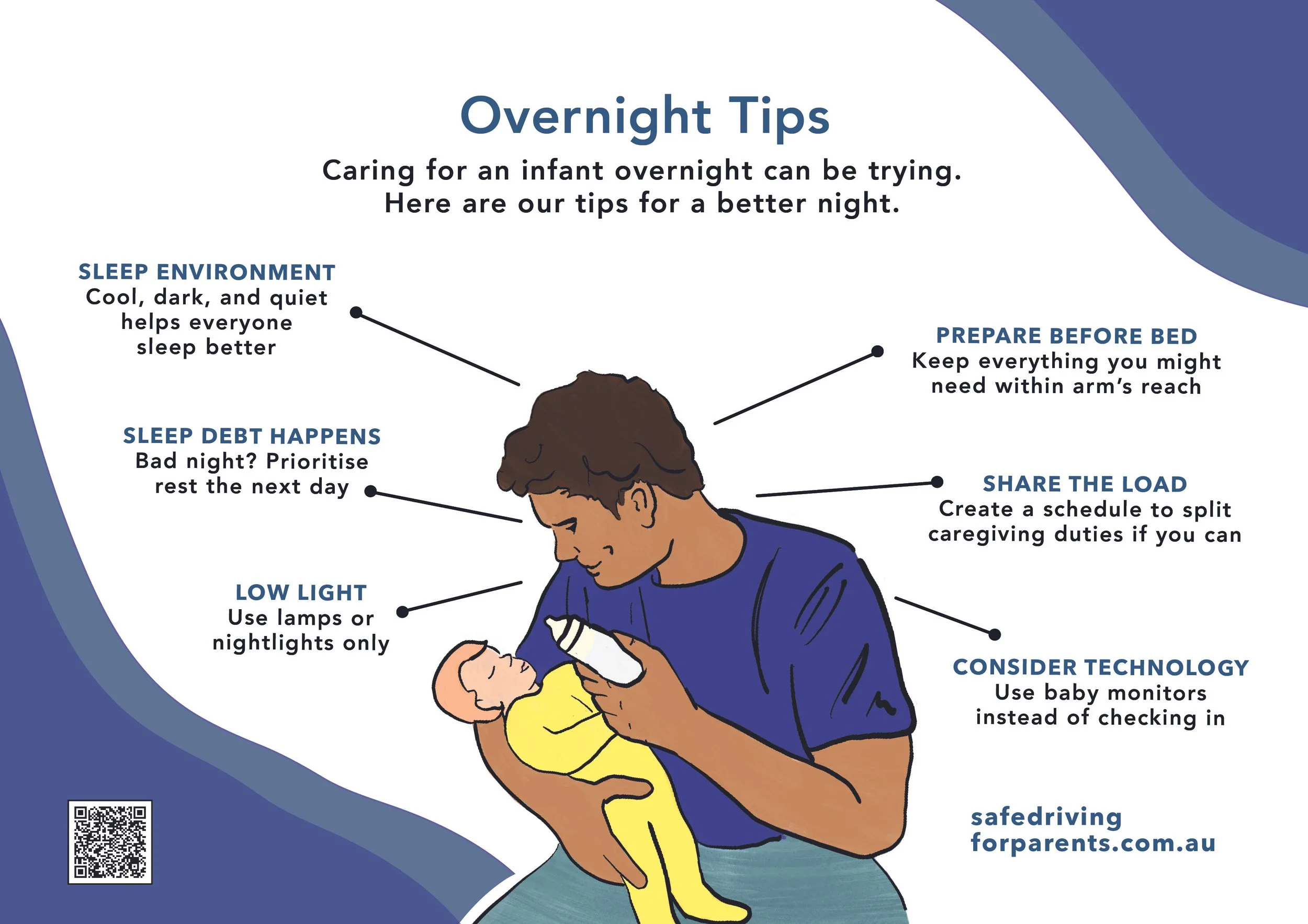
Tips for Getting Better Sleep
Science Backed Tips
Whether you're juggling late-night feeds, toddler tantrums, or school runs, it’s easy to underestimate how tired you really are.
Tips for Getting Better Sleep
Make sure your room is cool and comfortable (16 – 20 degrees)
Block out as much light as possible in your bedroom
Switch off all light sources
Cover lights from any electronic devices on standby
Block out light coming from outside of your room (e.g., under doors, windows)
Heavy window furnishings
Eye masks
Reduce noise when you are trying to sleep
Turn your phone off / do not disturb mode
Consider white noise
Avoid using devices in the 2h before bed, particularly phones, laptops, and tablets. If you do need to use a device, try using night mode.
Make sure you are eating healthy food and staying hydrated. This will help you to get better sleep and reduce daytime fatigue. Foods rich in tryptophan are good for promoting healthy sleep: nuts, seeds, eggs, fish, milk, cheese, tofu, beans, and bananas., chicken, turkey, salmon, peanuts, sunflower seeds, pumpkin seeds, and sesame seeds, quinoa, sour cherries.
If you are consistently getting very poor sleep or have very high daytime fatigue, this may indicate a sleep disorder. Speak to your GP if you are concerned.
VIEW OTHER RESOURCES
Use these infographic as an ‘in your pocket’ reminder and guide.
You can easily save the images directly to your phone or download them from each resource page.







